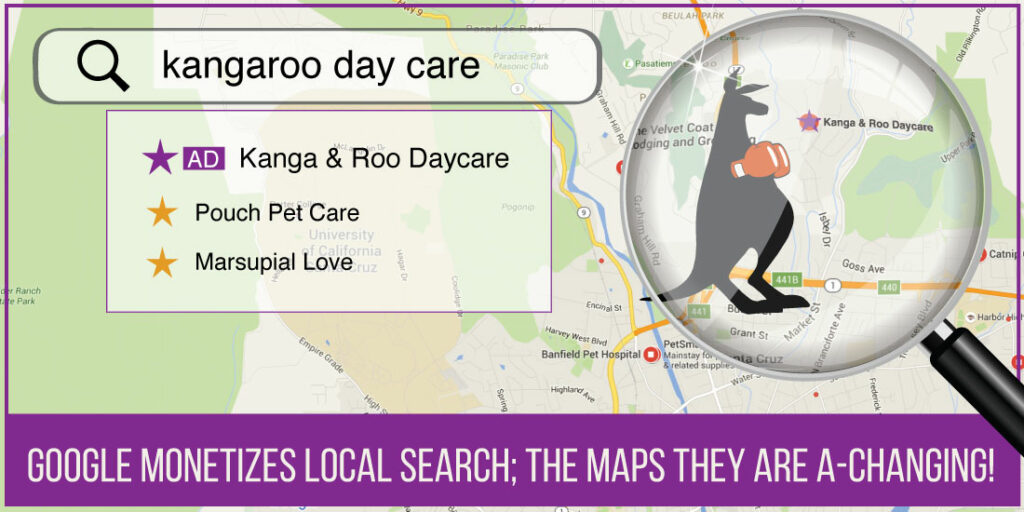Local Search will never be the same, and here’s why: Now when a consumer searches for business listings on Google, say for ‘kangaroo daycare’ they’ll be presented with an ad-driven result before the rest of the organic business listings.
As a business owner this means a couple of things: 1. You now have an opportunity to pay to play on a local and highly relevant search level. 2. If you don’t want to pay, then you’ve got to accept the fact that competitors’ searches are going to be placed above yours! Organic searches will still populate local searches from the 2nd result, but the #1 result is going to be a paid ad business listing.
How will this all go down, and why?
Imagine you are driving through a new town with your pet Kangaroo and you need to find a daycare. Chances are you’ll pull out your phone and search ‘Kangaroo daycare near me’ or ‘in xyz city’ on Google Maps. With this new rollout of ad based search you are going to see a few things:
1. The first result for that Kangaroo Daycare will now be an ad with a purple label above the organic search results.

2. If you’re not in google maps but just a regular ol’ search, then expand upon what the search sends you (by clicking on the ‘more places’ button) then you’ll see an expanded business listing list and that purple ad search result at the top.
3. What else can you expect with this new Local search rollout? Features like promoted pins, changes to Google local business listings and pages and the ability to highlight offers specific to a location. We will bring you details on all of this in the next few days. Perfect timing for your Mobile ready Summer!
4. Why all these new features? Wordstream.com shared some pretty amazing stats that make us say ‘aha’ when trying to understand why this change has come about:
- Around 90 percent of all global sales will happen in stores, as opposed to online.
- Nearly a third of mobile searches are related to location.
- Location-related searches have been growing 50 percent faster than mobile searches overall in the past year.
- Google searches (on Google.com and Maps) guide consumers to 1.5 billion destinations every year.
- 84 percent of consumers conduct local searches.
- Three out of every four people who search for something nearby using their smartphone end up visiting a store within a day, and 28 percent of those searches result in a purchase.
Wordstream.com has also got all the ‘deets’ on when this rolls out (answer: soon!) and how to get started making it work for you if you want to jump on board.
See you on the map!


